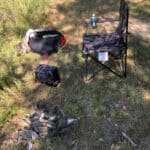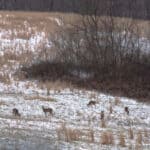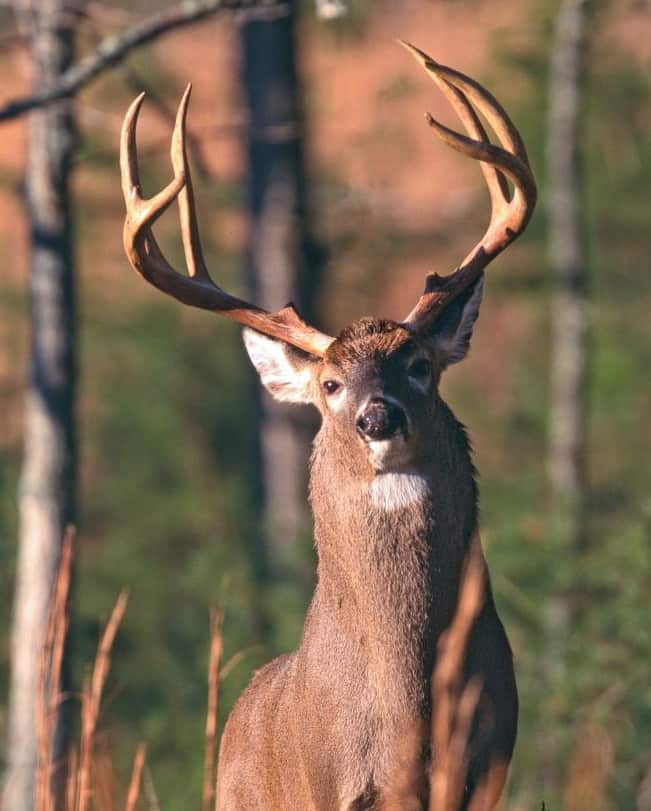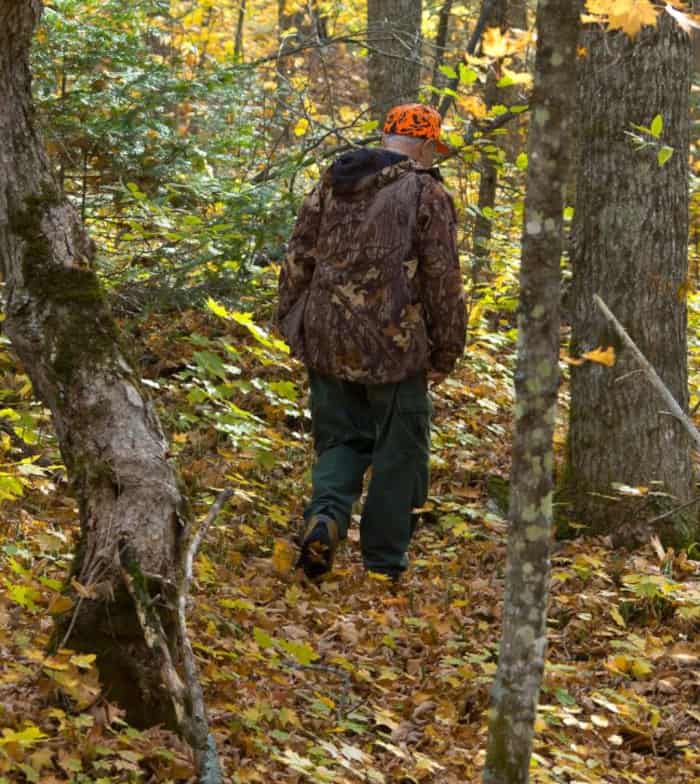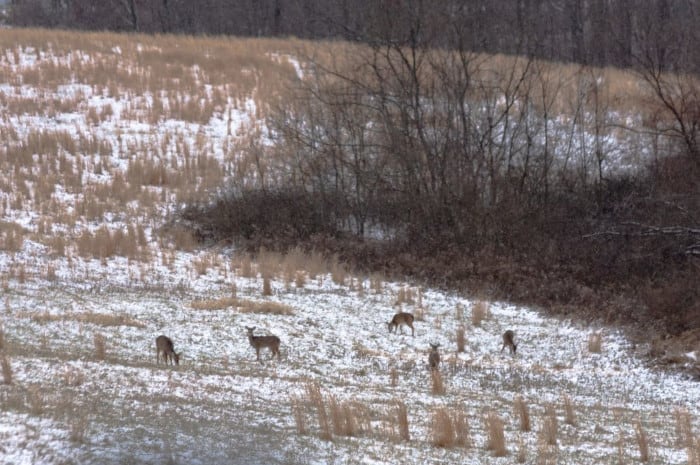Analyzing and understanding whitetail behavior can be a significant part of the deer hunting process, especially when chasing an older, mature buck that has been hunted before. While I certainly don’t consider myself an “expert” on whitetail behavior, I do have extensive deer hunting experience, and my day job gives me access to many other successful deer hunters with a wealth of experience and wisdom. One deer behavior question I see asked quite a bit is will a deer come back after blowing or being spooked?
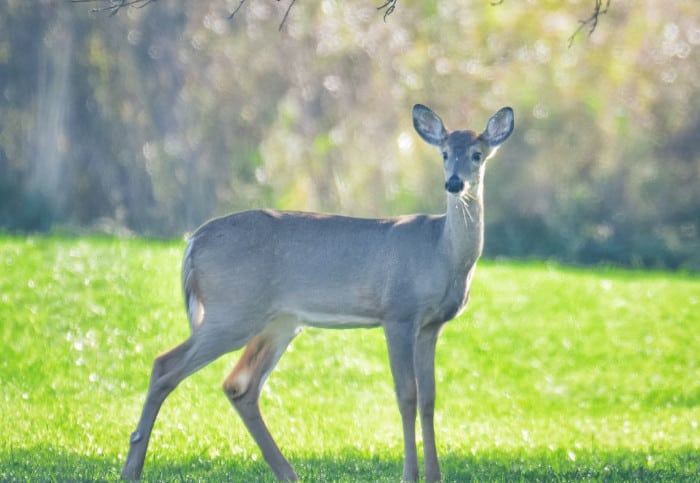
Honestly, it’s a challenging question to answer because there are several reasons that may cause a whitetail to snort, and not every reason means that the snorting deer won’t return to the area.
Important Points
– The response to a snort or blow depends on factors such as the reason behind the behavior and the response of other deer in the area.
– Patience and evaluation of the situation are essential before prematurely ending the hunt after a snort or blow.
– Strategies such as scent control, remaining still and quiet, and allowing time for the area to calm down can increase the chances of a successful hunt, even in the presence of a snorting deer.
How Do Deer Snort?
Whitetail deer snort by forcefully expelling air through their nasal passages. As the air exits the deer’s nose and runs through its nostrils, it creates a “whoosh” sound.
Not all deer snorts sound the same because not every snort has the same meaning. For example, some deer snorts are soft sounding and may signify confusion. And then there are very loud alarm snorts that almost sound like a whistle being blown.
With the louder alarm-type snorts, the deer forces its nostrils together so the expelled air creates a whistling sound.
Why do Deer Snort?
Whitetail bucks and does are capable of snorting, and, most of the time, the snort is an alarm signal to other whitetails in the area. Typically, these alarm snorts will be accompanied by other behavior, including hoof stomping or foot stomping, tail flicking, and tail flair or raised tail.
Deer biologists believe that these secondary behaviors, when accompanied by a snort, are associated with danger. The secondary behaviors are believed to serve as a visual clue to other deer in the area.
However, not every snort is meant to be an alarm, so here are a few other scenarios where whitetails will snort:
Soft Curiosity-Based Snorts
I’ve seen situations, especially with doe deer decoys, where does will approach a decoy and do a soft snort, especially when they get close to the decoy to investigate.
Some deer researchers believe that these types of soft snorts are more inquisitive based than alarm oriented.
Loud Snorts from Does Being Chased by Bucks
I’ve also been in the stand just before the rut really ramped up and observed instances of does snorting at bucks that were investigating them. It appeared that these does were not in full heat yet, so the snorts almost sounded like a warning to the buck to leave them alone.
Loud Snorts from Does When Feeding in a Group
There have been several occasions where I’ve been hunting over a food source and observed feeding does do a loud snort when other bucks or does get too close. I suspect the snort was a warning of sorts that the other deer were getting too close to where this doe was feeding. This behavior seems more common when the doe has a fawn.
The Impact of a Snorting Deer on Your Hunt
The impact of a snorting deer on a hunt can vary depending on factors such as the reason for the blow, whether the deer detected the hunter, and how other deer respond to the snort.
In some of the examples I mentioned above, I stayed in my tree stand and continued to hunt even after the snorts because I didn’t feel like the deer were specifically snorting at my presence.
If a deer starts blowing or snorting during your hunt, I’d suggest the following:
- As I mentioned before, not every snort is a danger signal, so I’d suggest staying put to see how things pan out.
- Even if you’re confident the deer is snorting at your presence, I’d still consider staying in the stand because there are always chances that other, different deer will come along or the spooked deer will return.
Here’s a real-life situation that happened to me:
A friend and I were hunting a small plot of land (just over 20 acres) that bordered a large soybean field. Trail camera data showed that the whitetails were moving from a bedding area along a game trail bordering an old creek to access the soybeans. They used the trail to enter and exit the soybean field in the morning and evening.
We set up tree stands about 200 yards apart along the trail. Right after first light, a group of three does come walking down the game rail towards my stand. I was chasing a specific buck, so I just watched these girls meander along. However, as they walked within about 30 yards of my location, the lead doe stopped and raised her head to check the wind. As she raised her head, she looked right at me in the stand.
I froze and tried not to maintain eye contact with her. She knew something was up and stomped once while letting out a loud snort. The group immediately fled with the tell-tale white tail being raised. Even though I was using a scent cover, I suspect that being so close, she picked up my scent.
I was concerned that my hunt was over but decided to stay in the stand because I didn’t want to spook anything for my buddy. About an hour later, two more does, and a decent buck (not my target buck) came walking right by me and didn’t seem to have any idea I was there.
The point of that story is this: just because you think you’ve been busted by a snorting deer doesn’t necessarily mean that your hunt is over.
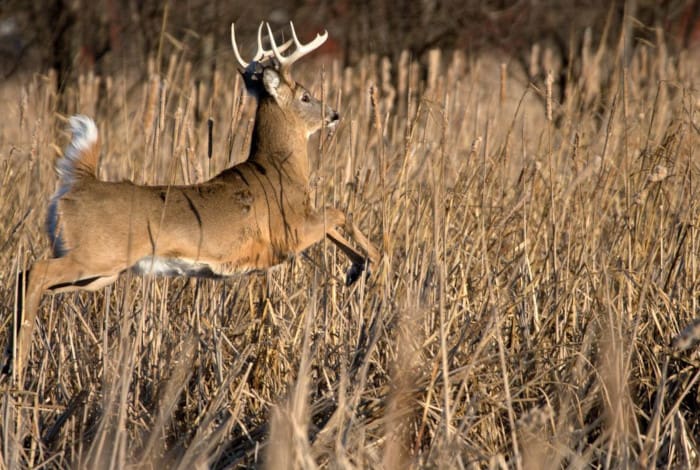
Frequently Asked Questions
Here are some commonly asked questions associated with whitetail deer snorting or blowing an alarm:
Can a deer blowing or snorting actually scare away other deer in the area?
Deer blowing or snorting can indeed scare away other deer in the area. This behavior is a form of communication that can be used by deer to alert others of potential danger. It can trigger a flight response in nearby deer, causing them to flee the area. This has implications for hunting techniques as it can disrupt the presence and behavior of other deer in the vicinity.
Are there any specific scents or noises that are more likely to cause a deer to blow or sound the alarm?
Specific scents or noises that have the potential to disrupt a hunt and cause a deer to blow include strong human odors, unfamiliar or loud noises, and foreign scents such as gasoline or tobacco. These stimuli can trigger a deer’s alertness and result in the end of the hunt.
What are some strategies hunters can use to prevent a deer from blowing and potentially ruining the hunt?
To prevent a deer from blowing and potentially ruining the hunt, hunters can employ strategies such as minimizing disturbance by moving slowly and quietly, using scent control measures, and practicing proper stand placement to avoid direct line of sight with deer.
Is there any way to determine if a deer blowing is just clearing other whitetails out of the food source or if it indicates a potential hunt disruption?
Determining deer behavior and identifying potential hunting disruptions can be challenging. Factors such as the reason for the blow, the response of other deer, and the time needed for the area to calm down and recover can help determine if a deer blowing is simply clearing other whitetails or if it indicates a potential hunt disruption.
Will a deer come back after blowing or stamping their feet?
It is possible that a deer may come back after blowing or stamping their feet, but it is not guaranteed. Deer have different reactions when they feel threatened or spooked, and their behavior can vary.
What is a doe blow?
A doe blow is when a female deer, specifically a doe, forcefully blows air through her nose as a warning to other deer in the area. It is a vocalization commonly used to alert other deer of potential danger.
Will another deer come back after a doe blows?
If a doe blows to signal danger, it can alert other nearby deer. Depending on the level of perceived threat, other deer may become cautious and avoid the area temporarily. However, it is not uncommon for deer to return to the area after some time has passed.
Is the hunt over when a doe blows?
When a doe blows, it does not necessarily mean the hunt is over. While it may startle and alert other deer, there is still a chance that they will return to their normal behavior later. It is vital to remain patient and observant during your hunting experience.
How many deer can be spooked by a doe blow?
Depending on the circumstances, a blowing doe can potentially spook a buck and other deer in the vicinity. The number of deer affected by the blow will vary based on their proximity to the doe and the perceived threat level.
Can deer smell a hunter?
Yes, deer have a keen sense of smell and can detect the scent of a hunter if they are downwind or within close proximity. Hunters need to take precautions such as using scent-control products and hunting with the wind in their favor to minimize the chances of being detected by deer.
What should I do if I hear a deer blow while hunting?
If you hear a deer blow while hunting, it may be an indication that there may be deer in the area and that they are aware of your presence. Take this opportunity to assess your position and be cautious of your movements. Consider adjusting your strategy if necessary.
Will a spooked deer return to the area?
A spooked deer may or may not return to the area where it was spooked. While some deer have been known to flee and not return for an extended period, others may return relatively quickly if they do not perceive further danger. Each deer’s reaction can vary.
Do deer go back to feeding after being spooked?
The answer will somewhat depend on the level of the spooking. In some cases, deer will go back to feeding after being spooked if they do not perceive any immediate threat. However, it is also possible that the spooked deer will flee to a safe distance before resuming normal activities.
Can a spooked deer blow back?
Yes, it is possible for a spooked deer to blow back as a response to a potential threat or danger. Deer use blowing as a way to communicate with other deer and alert them to potential danger in the area.
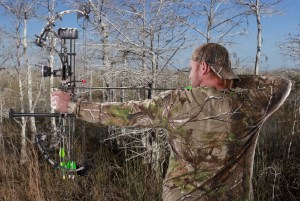
Born and raised in Indiana, Brantley spent his youth chasing deer and turkey and, along the way, developed a passion for bowhunting. Although he still enjoys other types of hunting, his true passion is bowhunting, and he has or will author most all the bowhunting content on this site. Outside of work, Brantley is married and the father of two beautiful little girls. Brantley has worked in the hunting industry, with an emphasis on archery and bowhunting, for more than ten years.

